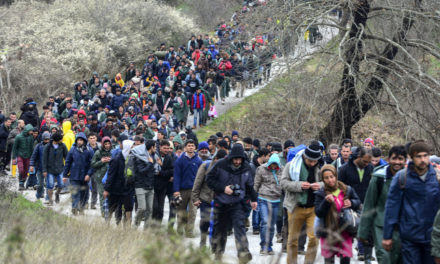Of course, this is what it is like when kind patients steal everything that can be moved, and even what is not, because the kind patients, or their even kinder relatives, even squeeze the liquid soap into a bottle, and in some places they tear out the from a wall.
I am waiting for my mother in the Blue Ball, yes, there, on the ground floor of the 14th building of the National Oncology Institute. No problem, no more, we just came for a check-up, and the Admissions Office looks more like a hotel reception than a hospital; no unpleasant smells, stomach-churning hospital colors, only people, patients and non-patients; I can't tell what's wrong with everyone, not everyone looks like they have cancer, but why am I writing this? Why is it so stubbornly fixed in the minds of those trained in socialism that cancerous diseases are burned on people's foreheads like an indelible mark?
There are a lot of people, but you don't have to wait more than two minutes for patient management, the line number just falls into my hand, I don't even write it down, they call me. Upstairs, on the second floor, the atmosphere is much more hospital-like, where real healing is taking place, with real patients, the attendants are just scenery evoking the unclouded charm of the outside world. I can hardly find a seat, and then I find one anyway, I accompany mom, she sits down, and I'm in the way of people walking in the corridor, I wander around stupidly for a few minutes, and then I go back to the ground floor.
Back to normality, to the hotel-like reception, where you can get a newspaper, sandwich and coffee, and where you can pass the weighty time in comfortable leather armchairs with crossed legs. Because in a hospital - as well as in more boring university lectures - even five minutes seem like fifty, and at other times our excellent sense of time fails fatally. I have to go to the bathroom, and I find the bathroom in order, only the paper and soap are missing, and the hand towel, symbolizing the standard cancer of Hungarian healthcare. This is what they are saying on the Pest side, and now the well-to-do women in Belbuda are also saying it, demagoguery just pours out of them as they wash their hands next to me, oh, all symbols, they must be DK, but at least MSZP.
"Hungarian health care should be blown up, pfff!" - declares one theatrically, and the other counters, "it's all rotten!" – their conviction is more frightening than anything at this moment.
I would like to say, to note that
"sure, that's how it is when kind patients steal everything that can be moved, and even what isn't, because the kind patients, or their even kinder relatives, even squeeze the liquid soap into a bottle, and in some places they tear it out together with the support assembly from the wall. Just tell me, are you a kind patient or just a kind relative?”
But I don't speak, I prefer to shut up, the time of the heat wave can be postponed, and the leather armchair is more comfortable than getting involved in a pointless argument in the bathroom of the Oncology Institute.
In the Miskolc County Central Hospital, the bathroom situation was almost the same, no paper, no soap, although even the well-to-do women of Belbuda were missing there. There are benches, trash cans, ashtrays in public areas, and lots of discarded articles in all of the places designated for smoking. Because not all of the dear patients and relatives feel the need to properly place their suppressed or burning cigarettes in the designated device. No way! To do that, you should get up from the bench and see how much more convenient it is to aim at the ashtray with one loose movement than to walk over and throw the trash in it. Thus, in the end, the missed three-pointers manifest in the space around the hospital ashtrays, giving a hopeless vision of our educational shortcomings.
My father died four years ago, and he spent only four days in Miskolc, in the oncology surgery, in a brand new, European-standard building; two were in a four-bed room, the nurses and doctors did their job flawlessly. It was not because of them that he died in four days, and not because cancer is no longer cured in our country over the age of 75. One of the unbearably stupid, but all the more knowledgeable relatives raised the alarm at the end of January, when it turned out that my father was full of transfers.
"You can't get treatment - he shouted - because the Orbáns let the old patients die!"
Yes, directly. You read this. My father would have turned eighty in October, but he still received chemotherapy, but his body couldn't handle it. He was able to endure the treatment planned for 120 days for ten days, and then he said enough was enough. He died five days later. And it will never be clear how long he would have lived if he had rejected it from the beginning, just as the eternal demagogues never understand that healing is a responsibility, and chemotherapy can even speed up and make the inevitable more painful. For four of the 250 types of cancer (melanoma, prostate tumor, oncohematology, lung tumor), new preparations appeared that were not always, or not at all, tested on patients over 75 years of age, so it was the manufacturer who did not recommend their use. Whether these cancer drugs are used in older patients, in those who may have several chronic diseases and whose body does not react exactly like a younger person, is a purely professional decision, not a matter of health insurance. The side effects caused by the drug can even be fatal. But who cares about all this if the government can be forced to let the old people die?
Diseases do not strike us "like a bolt from the blue", but are the results of a multi-stage process lasting even years. The disease we experience is only "the tip of the iceberg", and according to the current state of medicine, disease prevention is the most promising strategy to reduce the burden of disease in the long term, and screening is the most promising strategy to reduce mortality in the medium and short term. Health care does not only include patient care, health care is a structured system of the activities of society that serve to preserve health, prevent and cure diseases, and in the case of chronic diseases, treat them, and in which the active participation of the individual and society is expected.
And then some data: if at least 70 percent of the population participated in the screening tests offered by the health care system, within 5-7 years after the introduction of organized screening, around 1,500-2,000 people would not die prematurely every year. However, the results of the "Hungary's Comprehensive Health Screening Program" (MÁESZ) are devastating. In the 2017 evaluation of the European Health Consumer Index (EHCI), our country achieved an extremely low value. Our situation is particularly bad in terms of obesity, unhealthy diet and reduced physical activity. In the light of the statistical data of the last eight years of the screening program, it can be stated that the Hungarian population belongs to the particularly high-risk group. Every second person dies of cardiovascular disease and cancer. At least three million people have high blood pressure, one million have diabetes, and 40 percent of the population is overweight. Compared to the EU average, we smoke much more and consume more alcohol, but we eat much less vegetables and fruit, and at the same time, most of us lead a sedentary lifestyle. In 2017, only 52.93 percent of Hungarian men took part in an annual general practitioner screening, while 69.40 percent of women took part. In the case of men, it is particularly interesting that this figure was 58.62 percent in 2010, and has been showing a downward trend since then.
We Hungarians go to the doctor when there is a problem, or when the problem is particularly big, when it is perhaps already too late. Just like my father. And some don't even then. This is our approach. Of course, screening tests are not mandatory in the legal sense, if we were to do so, our liberals would probably accuse us of violating personal and human rights, just as they did in the case of the homeless, because the government does not let them freeze to death on the street, even against the will of some. Therefore, no one can be forced to go for a screening test, after all, cancer is not a danger to the public, only a danger to oneself. There is still a lot to be done in the health sector, but not only on the part of the government, individual responsibility takes at least the same amount of it. And just as this writing was personal, so is healthcare - our most personal public matter.
Photo: Pixabay












